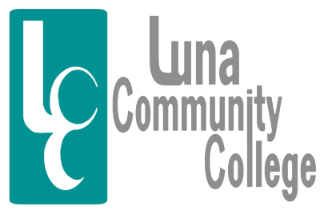Dental Assistant - CERT
Dental Assistant - Certificate
The CODA accredited Dental Assistant program at Luna is a one-year program beginning in the fall with sequential classes through the spring semester and summer semesters. Students will be required to complete 300 off-campus clinical practicum hours during the spring and summer semesters.
Students successfully completing the Dental Assistant Certificate program can apply to sit for the following Dental Assisting National Board (DANB) exams: Radiation Health and Safety (RHS), Infection Control (ICE), General Chairside (GC) and/or the Certified Dental Assistant (CDA). Graduates may also be eligible to take the State of New Mexico expanded function examinations in coronal polishing, topical fluoride, and pit and fissure sealants.
Individuals interested in the Dental Assistant Certificate program should be aware that the dental field does have some risk of occupational hazards. The nature of the occupation could involve contact with bloodborne pathogens and infectious diseases. Students admitted to the program will receive proper training in biohazard protection and the proper use of personal protective equipment (PPE) to reduce the risk. This is a special admissions program requiring both application for regular admission to the college and application to the Dental Program.
In addition to the courses listed below for this program, any student whose placement scores are below college level must also complete ENG 106 and MATH 102 or higher in order to meet institutional proficiency requirements.
Program Learning Outcomes (PLOs)
- Demonstrate competency in the knowledge and skill required to systematically collect diagnostic data.
- Demonstrate competency in the knowledge required for business dental office procedures.
- Demonstrate competency knowledge and skill in General Chairside and Specialty dental assisting.
- Demonstrate competency and practice in an ethical, legal and regulatory standard.
- Achieve a NM State Board quality Full Mouth x-ray series.
- Achieve Radiography Certification and expanded functions or become a Certified Dental Assistant.
Degree Requirements
The follow degree requirements are for the 2025-2026 Catalog. For other catalogs, please see CatalogsMinimum of 34 Credit Hours
| Concentration Pre-requisites (4 credit hours) | ||
|---|---|---|
| AH113 | Medical Terminology | 3 |
| HLED1115 | American Heart Association CPR | 0.5 |
| Pre-requisites are required for admission to the Dental Program. | ||
| Concentration Requirements (31 credit hours) | ||
|---|---|---|
| DENT103 | Dental Materials | 5 |
| DENT103L | Dental Materials Lab | 2 |
| DENT109 | Prevntv Dentistry/Oral Hlth Care | 1 |
| DENT118 | Dental Assisting | 2 |
| DENT118L | Dental Assisting Lab | 2 |
| DENT145 | Bio-Dental Science | 3 |
| DENT160 | Dental Radiology | 4 |
| DENT160L | Dental Radiology Lab | 2 |
| DENT167 | Oral Medicine | 2 |
| DENT170 | Clinical Training/Practicum I | 7 |
| DENT220 | Dental Office Management | 1 |
| DENT226 | Dental Pharmacology | 1 |
| DENT233 | Laboratory Procedures | 2 |
| DENT270 | Clinical Training/Practicum II | 3 |
Accreditation
The LCC dental assisting program is fully accredited by the Commission on Dental Accreditation, CODA, a branch of the American Dental Association (ADA). CODA is a specialized accrediting body recognized by the United States Department of Education and can be reached at (312) 440-4653 or at 211 East Chicago Avenue, Chicago, IL 60611. Our last site visit was held April 2025, and our next site visit will take place in 2032. Attending an accredited dental assisting program assures that our program has met very high standards, is regularly evaluated and that graduates are prepared to sit for credentialing exams upon program completion.’
Program Information Links
Dental Assisting Cert Curriculum Map
Aims of the Program
- The dental assisting program will provide a quality educational program focused on active learning to meet the needs of students and the educational community.
- The dental assisting program will secure continuing resources to support dynamic instructional strategies and to enhance student learning.
- The dental assisting program will support student and faculty personnel and professional development.
- The dental assisting program will serve the community by providing educational programs, dental assisting services, and optimal patient care to meet the needs of diverse groups in the community and surrounding regions.
Program Costs
Click here —>What are the program costs?
DANB Exam Pass Rates
Bloodborne Pathogen Risk Statement
All individuals interested in pursuing the Dental Assistant Certificate should be aware that the dental field does have some risk of occupational hazards. The nature of the occupation could involve contact with infectious diseases, including AIDS and Hepatitis. All students admitted to the program will receive proper instruction in standard precautions and use of personal protective equipment to reduce the risk of blood and body fluid exposures.
